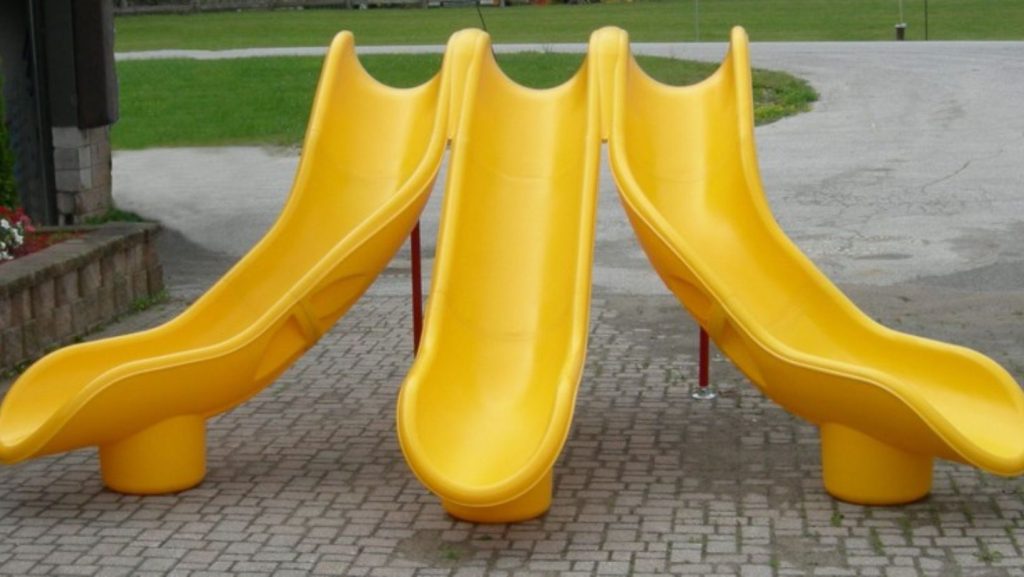
Custom rotational molding, often simply known as ‘rotomolding’, sees extensive use in the dynamic world of the plastic industry. This method has become a cornerstone for manufacturers globally, enabling the creation of a wide variety of products. But why does this technique hold such significance? Let’s delve into the unique aspects of custom rotational molding and understand its vital role in shaping the plastic industry.
What is the Custom Rotational Molding Process?
The custom rotational molding process begins with a hollow mold filled with a quantity of plastic, often in powder form. This mold is then heated and rotated simultaneously along two perpendicular axes, causing the plastic to melt and evenly coat the interior of the mold. Once the plastic has achieved the desired thickness, the mold is cooled, solidifying the plastic into the desired shape.
This technique’s versatility lies in its ability to create a broad range of complex forms with consistent wall thicknesses. Irregular shapes, multiple cavities, or integrated components are all possible with this process, making it an ideal solution for creating a variety of industrially significant products such as tanks, containers, and intricate components.
How Rotational Molding Is Beneficial in the Plastic Industry
The custom rotational molding process offers several distinct advantages over other plastic manufacturing methods, making it a preferred choice in the industry.
Design Flexibility
Custom rotational molding stands out for its incredible design flexibility, an attribute that sets it apart from other plastic manufacturing processes. This process allows the creation of plastic parts in a vast array of sizes, from tiny intricate components to large industrial tanks. Moreover, it facilitates the formation of complex geometries and designs with uniform wall thickness and can incorporate features such as ribs, curves, and undercuts. With rotational molding, manufacturers can customize design elements to meet their exact specifications, thus enabling tailored solutions that match the unique needs of various industrial sectors.
Cost-Effective for Large Parts
Cost efficiency is a key advantage of custom rotational molding, particularly when it comes to the production of large, hollow parts. Traditional molding processes often require expensive tooling for such tasks, significantly driving up production costs. However, rotomolding bypasses this need for complex tooling. This results in noticeable cost savings, particularly for manufacturers requiring low to medium production volumes. Therefore, rotational molding proves to be an economically sound choice for the plastic industry, delivering high-quality, large-scale components without incurring excessive expenses.
Seamless and Stress-Free Parts
One considerable benefit of the rotational molding process is the production of seamless and stress-free parts. During the process, the plastic material is evenly distributed and coats the entire interior of the mold, eliminating the need for joints or weld lines. This results in a one-piece product with a uniformly smooth surface, a critical factor for applications demanding flawless finishes and high aesthetic standards. The absence of stress points further adds to the product’s durability, enhancing its resistance to cracks or breaks and extending its lifetime. This seamless and stress-free nature of rotomolded products is another compelling reason why this process is favoured in the plastics industry.
Uniform Wall Thickness
Uniform wall thickness is a crucial attribute that custom rotational molding delivers with remarkable consistency. This consistency is achieved through the process’s unique mechanism, wherein the plastic melts and coats the mold’s interior evenly while rotating. Achieving uniform wall thickness can be a challenge in other manufacturing processes, but rotational molding eliminates this issue. This uniformity is instrumental for maintaining the structural integrity of the product, ensuring durability and quality across the entire part. The ability to produce such uniformity across a variety of product sizes and complexities further underscores the invaluable role rotational molding plays in the plastic industry.
Suitable for Low-Volume Production
Custom rotational molding excels in its suitability for low-volume production runs. Unlike other manufacturing techniques that often require high quantities to be cost-effective, rotational molding can economically produce smaller batches of custom or specialized parts. This versatility opens up opportunities for manufacturers to experiment with designs, respond to market changes, or cater to clients who require limited quantities. Therefore, rotational molding not only delivers quality and flexibility but also caters to a broad spectrum of production needs, reinforcing its importance in the plastic industry.
Durability and Impact Resistance
Products resulting from the custom rotational molding process are renowned for their durability and high resistance to impacts. Rotomolded items withstand harsh environments and absorb shock effectively, making them suitable for a broad array of applications. These properties are particularly beneficial in sectors such as the automotive industry, where components must endure significant stress. Additionally, industrial applications often require robust and long-lasting parts, a demand met by this molding process. Outdoor products, such as playground equipment and storage tanks, also benefit from the durability and impact resistance of rotomolded parts. Ultimately, this quality ensures that rotational molding continues to be a valuable choice for plastic manufacturers worldwide.
Easy Modifications
The rotational molding process offers unparalleled adaptability, allowing for design adjustments without substantial cost implications. This flexibility is especially beneficial during the product development phase, where design changes are commonplace. Whether it entails minor tweaks or significant alterations, rotomolding accommodates these modifications with ease, sparing the need for costly new tools or molds. Consequently, this process proves to be an optimal choice for the dynamic manufacturing landscape, where designs are subject to continual refinement and improvement.
In conclusion, custom rotational molding offers an array of advantages, making it an ideal choice for a myriad of applications across various sectors. From design flexibility and cost-effectiveness to durability and easy modifications, rotational molding stands out as a versatile, efficient, and economical solution for plastic manufacturing. At SPI Plastics, we leverage this innovative process to deliver customized solutions tailored to your unique needs. If you have a plastic project in mind, contact us today. Our team of experts is ready to assist you in bringing your vision to life, providing unparalleled quality and service every step of the way.